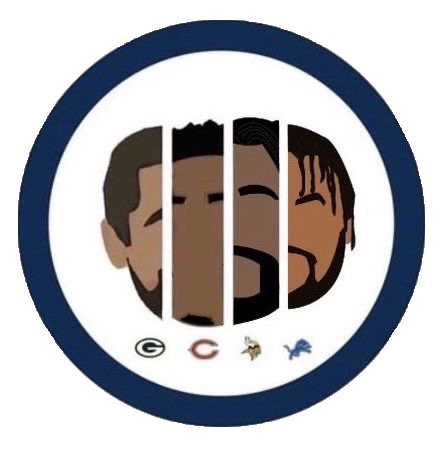NFL Twitter doesn’t know what good quarterback play means.
Upon scrolling through Twitter following the Chicago Bears’ loss to the Detroit Lions, I’m convinced that the above statement is true. On Sunday, Justin Fields once again accounted for four touchdowns, including another 60+ yard scramble. Yet in spite of surpassing 29 points for the third week in a row, the Bears haven’t won a game since October. Of course, this inevitably leads people on Twitter to speculate why that might be. From what I saw following the game, most tweets condemning the loss can be best summed up with the phrase:
“Justin Fields needs to improve as a passer if the Bears want to start winning games.”
That seems like a pretty obvious take, right? The Chicago Bears have averaged the fewest passing yards in the league all year, so naturally that’s the area where they need to improve. However, I invite everyone who holds this belief to tug on that thread a little further. *Why* exactly do the Bears need to throw for more yards if they want to win games? Well, statistics show that teams with elite passing offenses tend to score more points than teams that don’t. It’s hard to argue with that, but here’s another statistic: since the game against New England, the Chicago Bears are ranked 1st in the NFL in points scored. Let me say that louder for the people in the back:
THE CHICAGO BEARS HAVE SCORED MORE POINTS IN THE LAST FOUR WEEKS THAN ANY OTHER TEAM IN THE NFL.
That’s more points scored than loaded offenses found in teams such as the Chiefs, Dolphins, Bengals, and Bills. The truth that is backed up by the statistics as well as anyone with eyes is that Justin Fields has (most would say single-handedly) resurrected a stagnant Chicago offense and has done it without the privilege of having elite playmakers around him. Oftentimes when we make a prescriptive statement about what a losing team *should* do if they want to start winning, there is plenty of room for disagreement; bad teams tend to have a lot of holes, after all. However, to say that the Bears are losing games because Justin Fields isn’t passing the ball enough shows how easy it is to lose the plot as an NFL fan.
The NFL has made it clear that the future of the league lies in its passers. I don’t think anyone can disagree with that. Gone are the days of mud-battles featuring franchise running backs who get 30 touches per game. The NFL is now a passing league, and any team who doesn’t understand that is bound to spend their Sundays getting boat raced by the teams who do. This sentiment holds true with Chicago at first glance. When you look at their record and then look at their passing stats, it’s far too easy to feel enamored with the “350 passing yards per game or you lose” narrative perpetuated by the success of players like Patrick Mahomes and Josh Allen; but the truth is that the scoreboard doesn’t care how you get to the endzone, so long as you do in fact get there. Sure, teams in recent memory have found it significantly easier to score through the air than on the ground, but an effective ground game shouldn’t be disparaged by that fact. That brings us back to Chicago’s perception online. In layman’s terms, people have blamed the Bears’ passing game for their losing streak because it *feels* like the right thing to say. Justin Fields isn’t passing for hundreds of yards, therefore he is costing Chicago games.
To repeat the phrase from the beginning of this article: NFL Twitter doesn’t know what good quarterback play means. Instead, they can tell you how close a given quarterback is to Patrick Mahomes or Josh Allen. Justin Fields could break the single-game rushing record every week for the rest of the year, and he would still be considered a bottom-10 quarterback in the eyes of some NFL fans. While this might not be fair or accurate, this perception broadly means very little to the future of the Chicago Bears. If Justin Fields continues to play the way he has in recent games, the Bears will be in good shape long into the foreseeable future. With all of that being said though, it’s hard not to scoff at all the tweets trying to convince me that somehow, someway, 30 points per game isn’t good enough.







